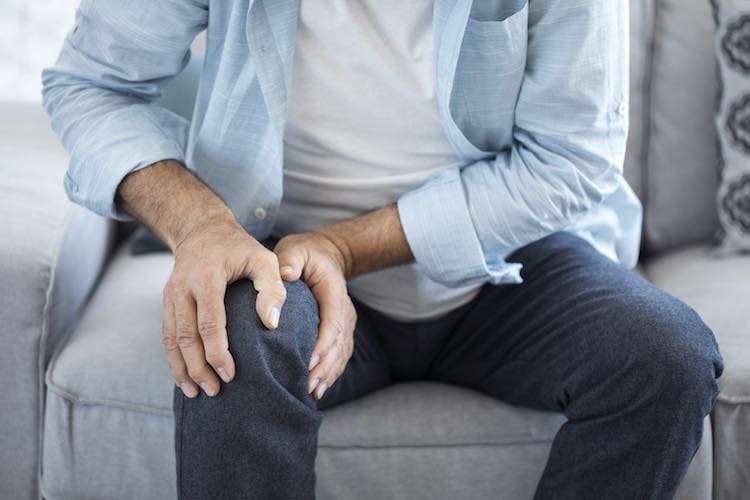Osteoarthritis is one of the most common forms of arthritis. Osteoarthritis occurs when the cartilage between joints breaks down, leading to pain, stiffness and swelling.
The degenerative inflammatory condition mostly affects the hands, spine and joints in the hips, knees and ankles and is most likely to develop in people aged over 45 years. Affecting almost one in 10 Australians, it is a leading cause of knee and hip replacement surgery.
Osteoarthritis has no single cause. Carrying too much weight, having a previous joint injury and having a family history are the key risk factors for developing osteoarthritis. Carrying too much weight not only puts additional strain on the knees, but it also alters a person’s gait, further affecting the knee joint.
Weight loss can help with symptoms of osteoarthritis, but how effective is it in slowing progression of the condition? United States researchers collected health information from 640 overweight and obese people who had mild osteoarthritis or were at risk of it.
Over four years of tracking, the people were classified into three groups: those who lost more than 10 percent of their body, those who lost five to 10 percent, and those whose weight remained stable.
People who lost five to 10 percent of their body weight had lower rates of cartilage degeneration compared to people whose weight remained stable.
The slowing in cartilage degeneration was even more pronounced in people who lost 10 percent of their body weight. The results from the observational study point to a larger amount of weight loss being more beneficial for cartilage health than moderate or no weight loss
Weight loss is not a magic ‘cure all’ for osteoarthritis as thin people can develop it and suffer from worsening symptoms. Also, this study was observational so it cannot prove that it was weight loss the explained the benefit in a slowing of cartilage degeneration.
People who lost weight may have also increased their physical activity, which could have influenced joint health. People who had severe knee pain may have found it difficult to lose weight so this could introduce bias into the results.
Implications
If someone with osteoarthritis is overweight, losing around 10 percent of body weight can take the strain off joints and improve physical health and mobility. Combining weight loss with increasing physical activity is the best approach.
Losing weight is easier said than done. Support groups, individual counselling with a dietitian, medications, meal replacement foods, exercise programs and even bariatric surgery are all options. The right choice is the one that meets a person’s needs and is effective in keeping the weight off long-term.





